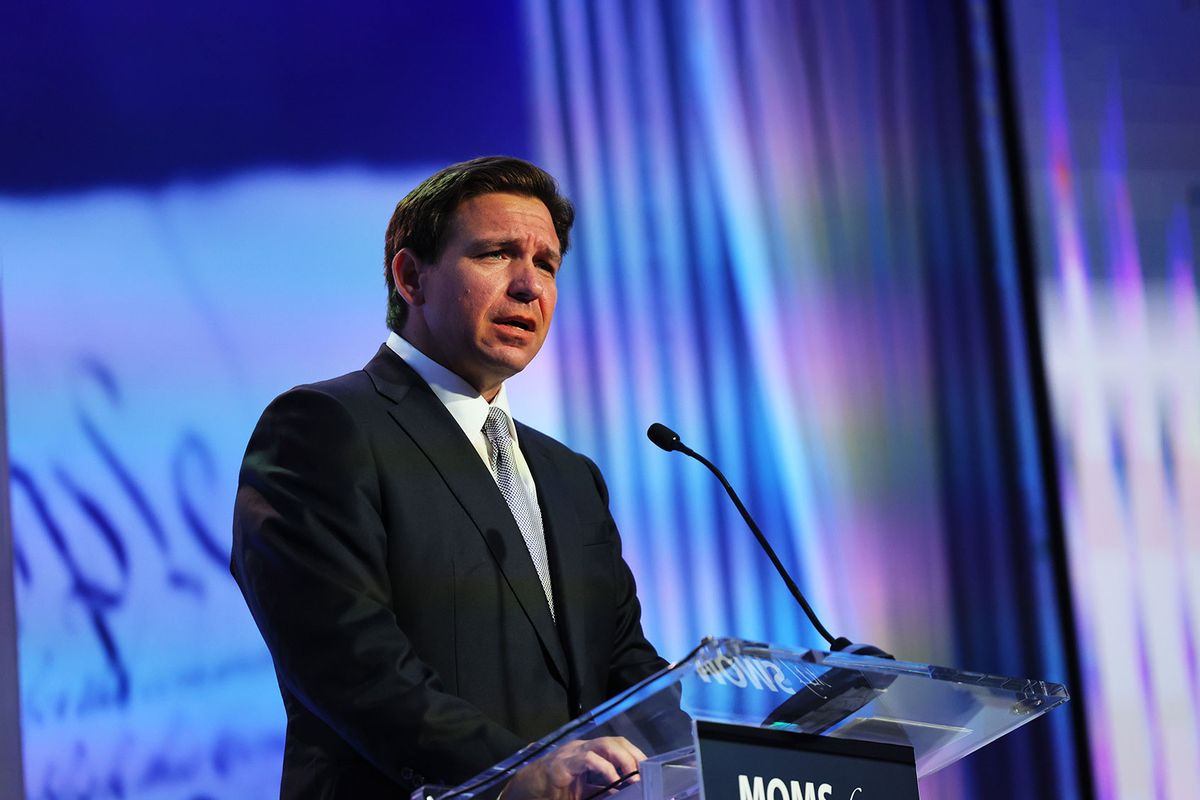A federal judge on Monday blocked a provision of a recently enacted Florida law targeting migrants to the United States that the ACLU dubbed a "clear and brazen attack on civic participation in our democracy."
S.B. 7050, signed by Republican Gov. Ron DeSantis in May, would have allowed the government to fine community organizations $50,000 for every noncitizen person who collected or submitted voter registration forms for the group, even if the individuals were legally authorized to work in the United States.
Chief U.S. District Judge Mark Walker, who presides over the Northern District of Florida, blocked the provision in a 58-page order, calling it "Florida's latest assault on the right to vote" and asserting that the provision would have "substantially interrupted" organizations' community outreach efforts.
"Tomorrow, Floridians across the state will commemorate our nation's birthday," Walker wrote. "They will endure the heat of the Florida summer to celebrate the Fourth of July with family and friends at barbecues and picnics. They will gather with their communities at public parks for music and fireworks. They will cheer and sweat at parades and block parties. And amid these patriotic festivities, some may feel moved, for the first time, to embrace their solemn privilege as citizens by registering to vote."
"That's where plaintiffs come in," the judge continued, highlighting the testimony of Veronica Herrera-Lucha, a permanent resident who is the Florida state field director for nonprofit voter registration group, Mi Vecino.
"Absent the challenged provisions at issue in these cases, individuals like Ms. Herrera-Lucha and [third-party voter registration organizations] like the Florida NAACP and Hispanic Federation would be engaging with their communities and registering new voters," Walker wrote. "Ms. Herrera-Lucha, a noncitizen who, herself, lacks the right to vote, has spent years registering and encouraging citizens to exercise that solemn right. She may, at least for now, continue to do so and add more voices to the millions of others singing a more perfect union into existence."
The president and CEO of the Hispanic Federation, Frankie Miranda, heralded Walker's decision for confirming "what we knew from the very beginning: Florida's latest voter registration law was unconstitutional and served no other purpose than to silence our communities."
"This ruling is a win for all Floridians—especially for underrepresented communities who rely on nonpartisan organizations like us to help make their voices heard," Miranda said. "We applaud this ruling, and will not rest until everyone's right to participate in our democracy is protected."
Want a daily wrap-up of all the news and commentary Salon has to offer? Subscribe to our morning newsletter, Crash Course.
The Hispanic Federation was one of several community groups that sued the state over the provision, which was part of the governor and the Republican-led legislature's broader voting restrictions. The law also includes provisions that place restrictions on mail-in voting and allow DeSantis to run for president without having to resign as Florida's governor.
In his Monday order, Walker admonished the state's political leaders for their alleged difficulty governing "within the bounds set by the United States Constitution."
"When state government power threatens to spread beyond constitutional bounds and reduce individual rights to ashes, the federal judiciary stands as a firewall," Walker added. "The Free State of Florida is simply not free to exceed the bounds of the United States Constitution."
Daniel Tilley, the ACLU of Florida's legal director, praised Walker's ruling in a statement, saying that it "fortifies the idea that all Floridians have a right to participate in building a stronger democracy through civic engagement."
"While this is a step in the right direction, our work is not finished," Tilley said. "People in our communities, including noncitizens, work tirelessly to assist in voter registration efforts to empower Floridians to vote on issues that impact their daily lives. We applaud the court's decision, but we must ensure this harmful law is struck down altogether."
Read more
about Florida's assault on voting

Shares